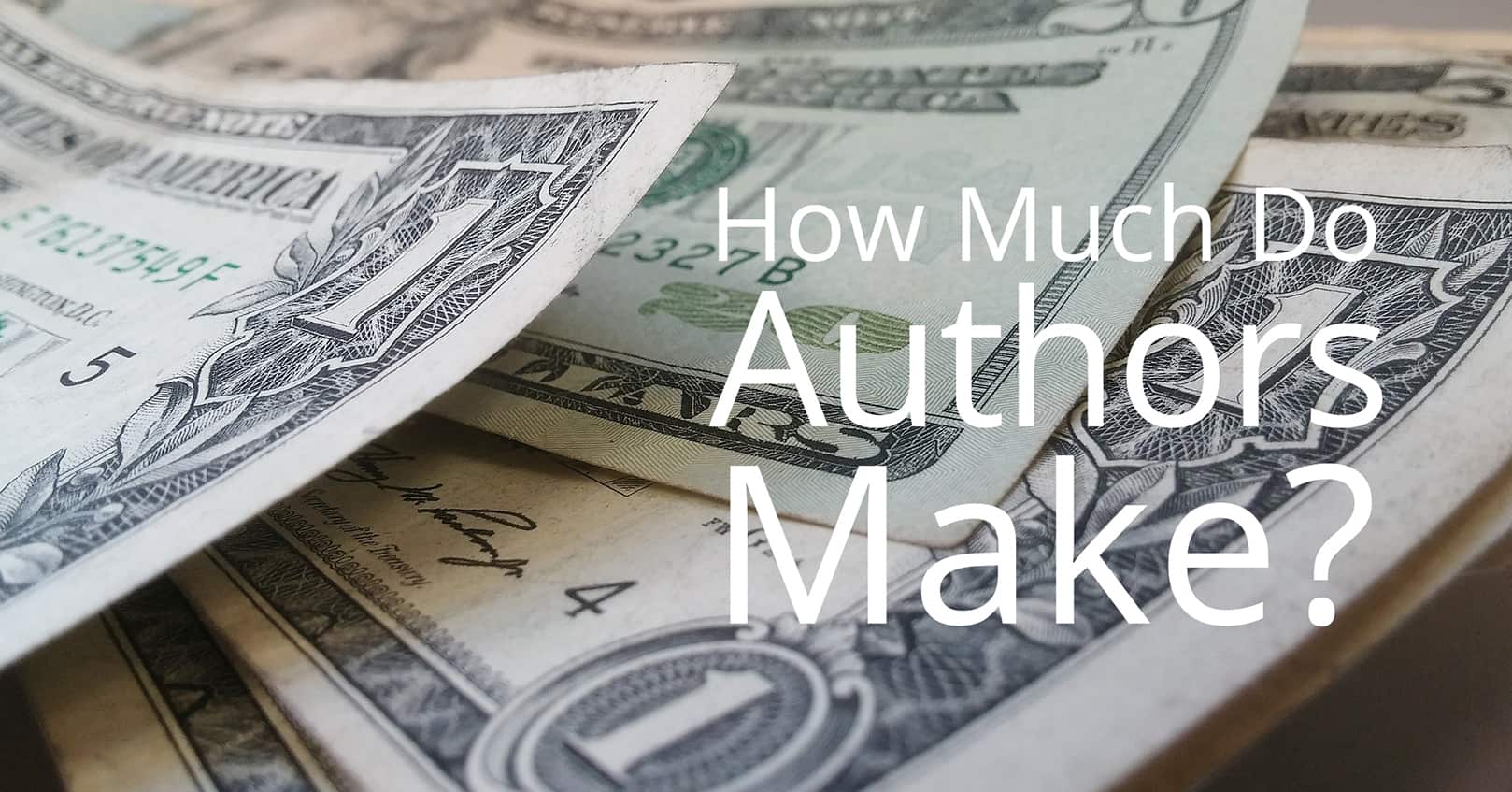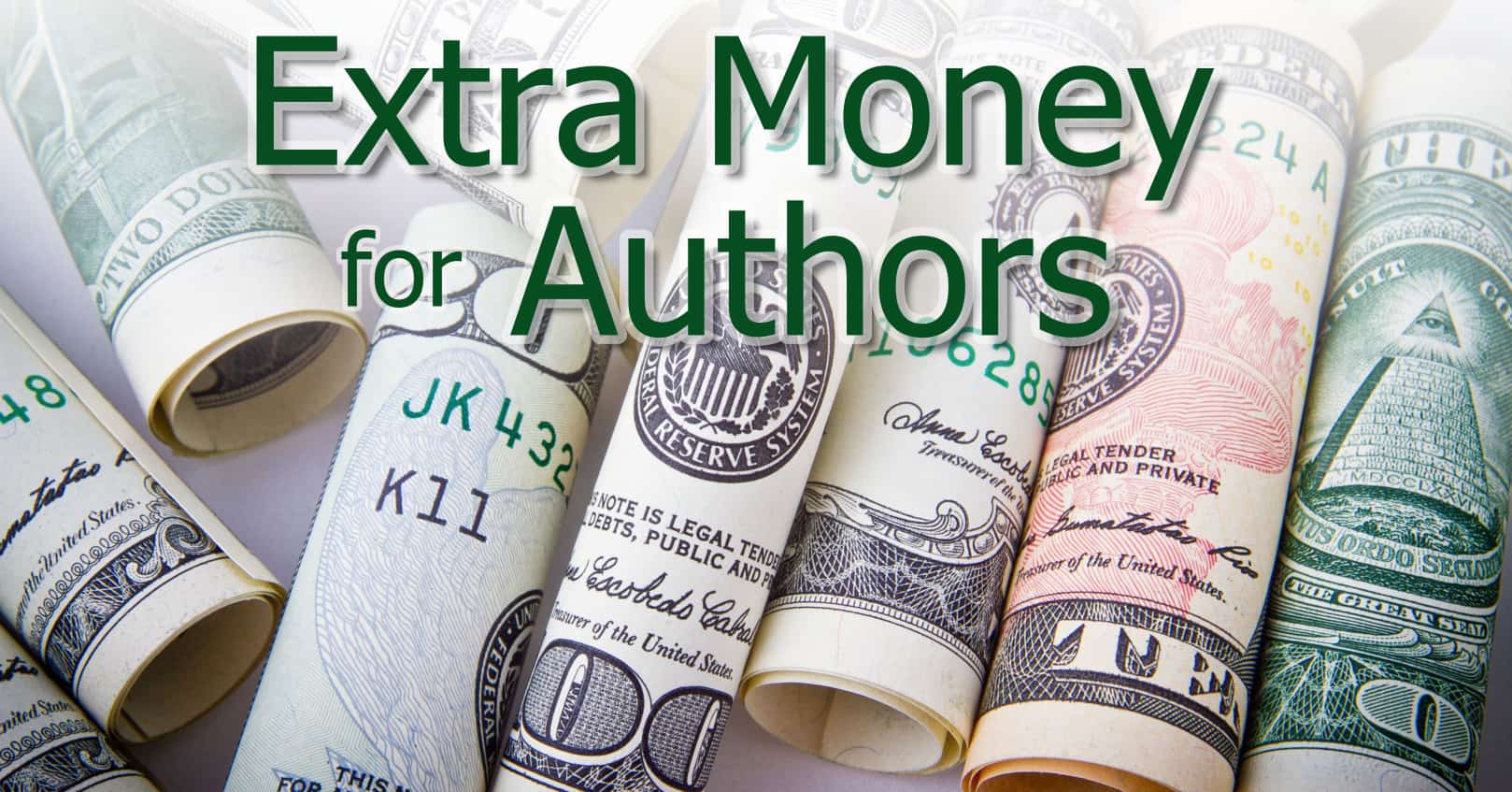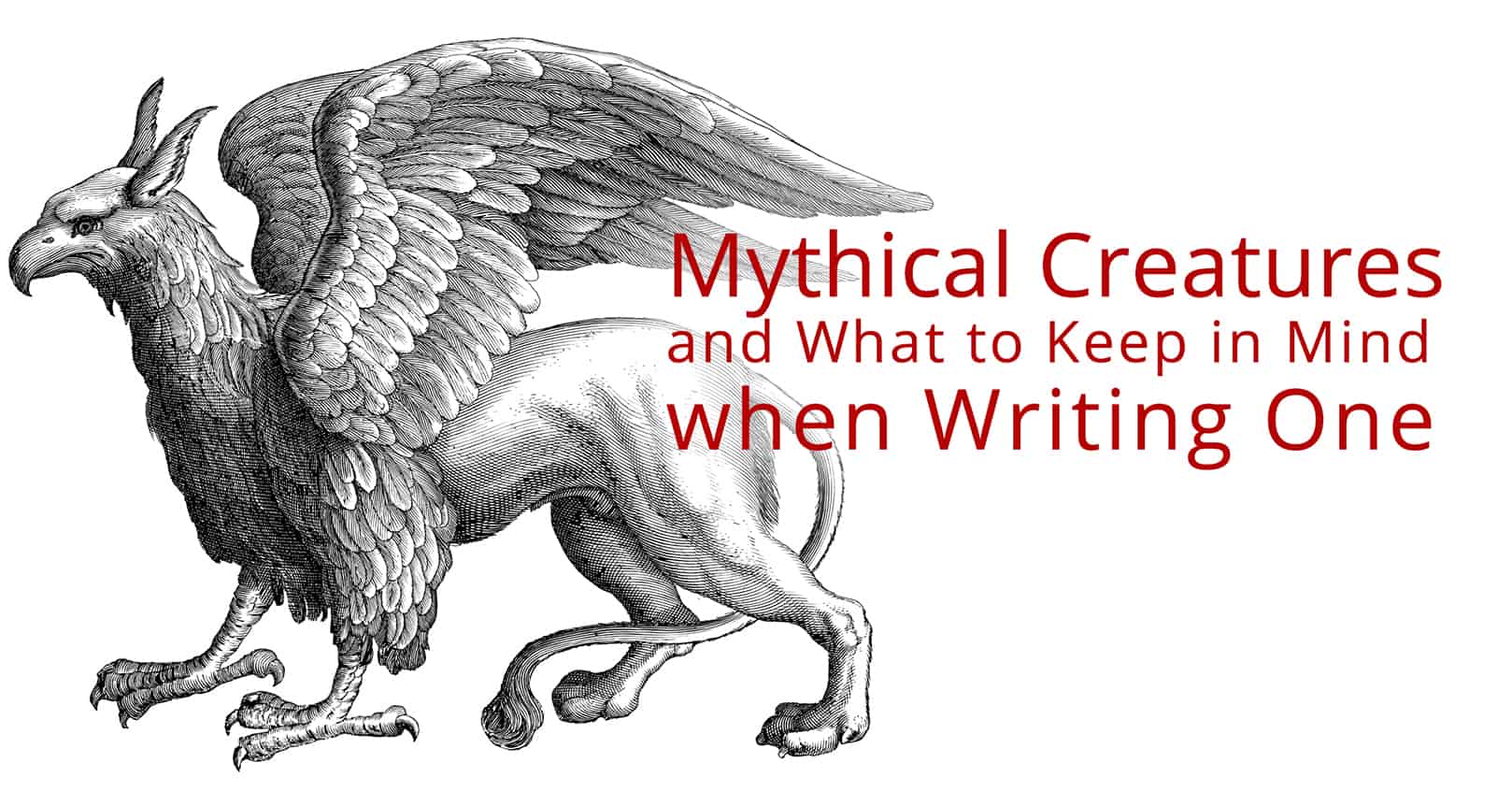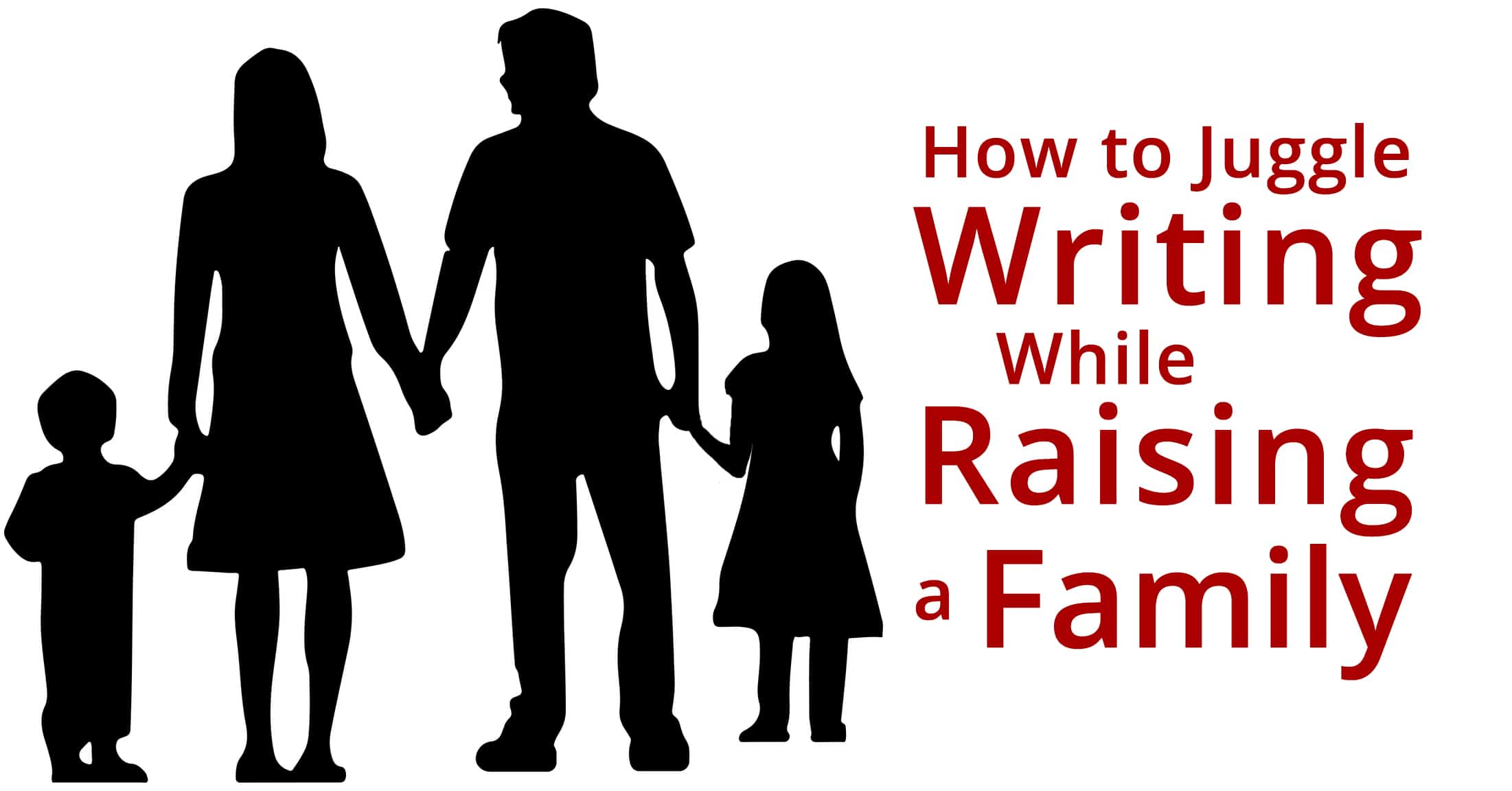
If you want to make a living as an author, you may wonder, how much do authors make? We’ll go over some basic numbers for traditionally published and indie authors.
Traditionally Published Authors
A traditionally published author may or may not receive an advance on their book for $5,000 to $10,000. Once the book is published, most publishing companies will pay the author around 10% in royalties (note: this royalty is historically based on the list price, but is increasingly more often based on the wholesale price, which are two VASTLY different amounts), but you have to earn back your advance before you can get paid additional royalties. Often, those advances don’t get completely earned out, so that may be all the money you receive. Which means the larger your advance, the more likely your publisher is to market your book so they can recoup their investment.
Let’s say your publisher is selling the book at $20, a reasonable, if a bit high, price for a paperback novel. Amazon currently offers 60% royalties for print books, so let’s say the wholesale price for this book is $12. If you then receive 10% of that, or $1.2. That means you’d have to sell 4,167 print books to recoup a $5,000 royalty. If you’re being paid on the list price, you’ll get $2.00 a book and will have to seller fewer copies to earn out your advance.
Depending on the publisher, the author, and the genre, the lifetime sales of your book will vary. But let’s say you’ve got a pretty good publisher, you’re a good author (but you’re not well-known like J.K. Rowling), and you write in a popular genre, so your book sells 15,000 copies in its lifetime. That’s very good (though keep in mind that some books may only sell 1,500 copies, and bestsellers may sell 30,000). With 15,000 copies sold and a $1.2 royalty, you’d make $18,000 on that book during its lifetime. If you spent a year writing and rewriting your book, and you write as many hours a day as you would for a full time job (so 40 hours a week), you would make around $8.65 an hour.
Now, all this is made more complicated by ebook sales versus print sales. Ebook sales vary greatly, but let’s say your ebook is priced at $9.99 (this is a high price for an ebook, but it will get you the highest royalties on Amazon). With this price, Amazon will minus delivery fees and give 70% royalties of the net profit. If your ebook’s delivery fee is $0.10 (it varies with the ebook’s size), that means Amazon will deliver $6.92 a book to the publisher. The publisher will likely give you around 25% royalties on that net profit, or $1.73 an ebook (based on a wholesale royalty model). Let’s say that of the 15,000 books you sold, 25% of them were the ebook, which a typical percentage for publishers. That means 3,750 copies were ebooks, and you earn $6,487.50 from those sales. The other 11,250 are paperbacks, and you earn $13,500 from those sales. The total earned is $19,987.50, for a total of $9.61 an hour.
Of course, this is made even more complicated by hardback and audiobook sales, but these numbers can help you get a feel for what you can hope to earn with a traditional publisher. Naturally, the more royalty you can negotiate, the better for your bottom line. And there are, of course, books sold by the largest publishers that sell well over a million copies of a book, but that is not commonplace.
If you can release several books in a year, your proceeds will go up, but that may not be possible. Most authors with publishers end up doing between one and three books a year.
Self-Published Authors
If you’re self-published, you get much better royalties, but you also have to take on the costs and time of creating and marketing the book.
Let’s assume that your book is good and you’ve put in the money for good editing and cover design (your book will not sell without these). You cannot sell your book for as much as a traditional publisher would, because you do not have the name backing of a traditional publisher. So instead, you may sell your paperback at $15 and your ebook at $4.99. You get all the royalties this time, so for 11,250 paperback sold ($9 royalties minus the cost of printing which can be anywhere from $1.50 -$4.50 depending on how many you print and with whom—for our purposes, we’ll say you’re doing print-on-demand and earning only $4.5o on each book), you’ll get $50,625, and for 3,750 ebooks sold ($3.42 royalties), you’ll get $12,836.25, for a total of $63,461.25. If your self-publishing costs (editing, cover design, and typesetting) are $3,000, your profit will be $60,461.25. For self-publishing, it likely won’t take you a year to write the book, but you also have to spend time on promotion, so we’ll just keep that year amount for a single book. That means you would make $29.07 an hour.
Now, that’s a good number, but as a self-published author, it’s very difficult to sell that many copies of your print book in its lifetime, especially if you’re just starting out. You don’t have a publisher selling your book to bookstores and getting it into libraries. You don’t have the authority of a well-known publisher to back your work. You may not have the time or experience to market your book enough. (Note: publishers are doing less and less to market lesser-known authors, though.) Some self-published books may only sell 100 print copies in their lifetime. But we’re assuming that your book is well written with an eye-catching cover. We’re also going to assume that you’re putting extra money aside for marketing, so you can sell more books. Let’s say that your book sells 5,000 copies over several years in all formats. As a self-published author, you’ll likely be selling far more ebooks than print books, since an ebook is cheaper and a safer bet for readers who don’t know you (and a lot of marketing sites will only market ebooks). So if 90% of your sales are ebooks, then you’ll sell 4,500 ebooks books ($15,390) and 500 print books ($2,250). That’s a profit of $17.640, minus the $3,000 in self-publishing costs, and then another, say, $500 in marketing costs. That’s net profit of $14,140, or $6.80 an hour for the time spent writing and marketing. Not a lot, but there is good news, so read on!
You can push that profit up significantly as you become a better, faster writer. Eventually, writing, publishing, and marketing a book may take you only a total of 6 months, which means you’d earn $13.60 an hour. Or maybe you publish, say, 5 books, then use marketing money to only market one, and that marketing also drives up the sales of the other books, which extends the lifetime of your book and give your more overall sales, usually in ebook. The more books you publish, the more effective your marketing will be, because it will affect sales on all of your books.
Maybe you offer the first ebook in a five-book series for free (but keep the print price the same), which takes away profit from those ebook sales, but gets readers hooked on the series. Then you could offer the next ebook for $2.99, and the next three books for $4.99. That drives up the ebook sales of your entire series, so the second book sells, say 10,000 copies in several years, the third 8,000, and the subsequent two books 5,000 copies. With these numbers, we’ll assume the same print sales stay the same (since, for simplicity’s sake, only ebook sales will increase), so 500 print copies sold of each book, for a total royalty of $11,250 for all five books ($4.5 x 500 x 5). (Note: honestly, unless you are doing school visits and book signings and pushing to get your print books in stores, your actual print numbers could be far less, and that’s okay because you can usually make up for it in the ebook sales.)
For the ebook sales, book 1 would, of course, get you $0, book 2 would get you $16,184 ([$2.99 – $0.10] x .7 x 8,000 copies), the third $20,538 ([$4.99 – $0.10] x .7 x 6,000 copies), and the fourth and fifth $10,269 each ([$4.99 – $0.10] x .7 x 3,000 copies), for a total ebook profit of $57,260. We combine that with the print royalties to get $68,510, then minus production costs ($3,000 x 5 + $500 x 5) to get $51,010, or $24.52 an hour if each book took a year, or $49.04 an hour if each book took 6 months and $73.56 if each book took 4 months. Of course, with good marketing, and MORE money spent on advertising, your books should sell even more copies, but it will take consistent effort. Some successful self-published authors sell 100 copies of one of their books per day! Other authors are doing really well to sell 30-100 of a book per month. If you have 50 books out there, that can still add up. You can extend the lifetime of your books over a decade or more, all the while adding more books. Keep in mind that if your book hasn’t been edited well and you don’t stay on top of marketing, it won’t make nearly this much.
Another Note
All these calculations are for the lifetime of a book. In other words, you’re not recouping this money right away, but instead over the course of a lifetime. But with ebook publishing, “lifetime” in books no longer means what it used to. In the old days, publishers marketed books hard only a few months, and after three or so years, the average authors really didn’t see many sales. With ebooks, that lifetime is extended, and you can keep pushing your book indefinitely and continue making more money. Even if you don’t hit our projected lifetime sales per book in 3-10 years, that’s okay. There is still time.
But that means you need to get started on that next book right away, and if you’re writing full-time, it’s best to have money saved up to tide you over until you get enough published books to start earning a living. A lot of authors find themselves working a side job in addition to writing. Or perhaps their spouse works. Or they may start with traditional publishing so they can get that guaranteed advance until they build up enough name recognition to break away from the publisher. Other authors find that staying with a traditional publisher is best for them.
If you’re a good writer who puts effort into marketing (and, if you’re self-published, pays a great editor and designer), you can make good money as a full-time author once you’ve built up a portfolio of published books to earn money from. We don’t want to discourage you; we want you to know that it will be hard at first, but there is light at the end of the tunnel!
What are your experiences with how much authors make in traditional publishing versus self-publishing? We’d love to hear in the comments below!












I self published a book five years ago on Smashwords and sold less than 50 eBooks. While surfing the web I found my book was being offered by an outfit called ebookent whose headquarters is in San Bernardino, California. According to their website over 7000 of my ebooks were sold and readers gave the book a four star rating out of a possible five. I never heard of ebookent or gave anyone permission to sell the book other than dealing with Smashwords. What happened?
I’ve got a feeling your paperback calculations are based on POD royalties through Amazon. Trad pub outfits don’t use POD. They have their own printers and suppliers and can also offer mass-market paperbacks as opposed to only POD trade paperbacks. Still, your final numbers are likely in the right ballpark as the author doesn’t get much on the sale of each unit (maybe less than what you are calculating – what trad authors receive is pretty poor and led to a solid argument for better royalties from eBooks).